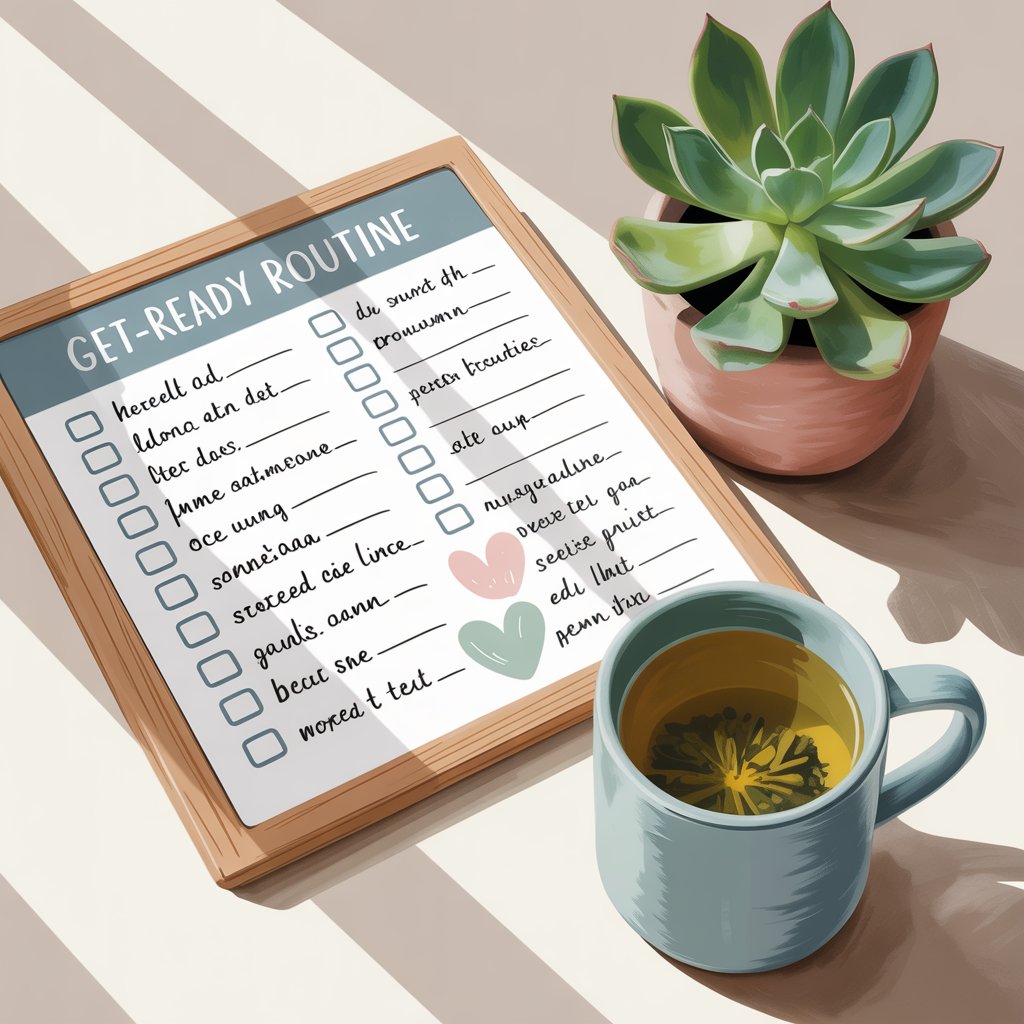How to Create Morning Routines for Autistic Children
Why mornings can be extra challenging
Mornings bring together many things that can be difficult for autistic children. There are time pressures, multiple transitions, sensory experiences (like getting dressed or brushing teeth), and often unexpected changes. After a night of sleep, autistic children may need extra time to regulate and prepare for the day ahead. The combination of all these factors can make mornings feel overwhelming for the whole family.
Mornings can feel overwhelming when you’re parenting autistic children. Every day brings different tasks and challenges. Getting ready for school looks very different from getting ready to visit the library or go to a friend’s house.
One tool that can make mornings easier is creating routines. For autistic children, routines help them know what comes next. This reduces anxiety and helps them feel safe and secure. For you as a parent, routines reduce the number of decisions you need to make each morning. This leaves you with more energy to support your child when they need it.
Types of routines you can create
You don’t need just one routine. You can create different routines for different situations:
- Morning and bedtime routines
- Weekend routines
- Special day routines (like Christmas or birthdays)
- School day vs. holiday routines
Tips to make routines work
Plan the night before: Do as much preparation as possible before bedtime. Choose outfits, pack bags, and put everything within easy reach. This removes stress from busy mornings.
Make it predictable: When your child follows the same steps every day, they feel more confident. Predictability reduces anxiety and helps mornings run smoothly.
Keep it simple: Don’t overcomplicate things. Break routines down into small, easy steps. Remember, the goal is to make life easier, not harder.
Stay positive: Children pick up on our emotions. Try to keep a calm, positive mood during routine times. If you’re feeling stressed, you can take a few deep breaths before you start.
Plan waiting activities: Sometimes your child will finish getting ready before you or their siblings. Have a quiet activity ready for them to do while they wait.
Stick to consistent sleep times: Autistic brains do best with regular sleep schedules. Try to keep bedtime and wake-up time the same, even on weekends and holidays.
Communicate changes early: When the routine needs to change, tell your child as soon as possible. Give them choices when you can. For example: “Tomorrow we’re leaving early. Would you like to have breakfast first or get dressed first?”
Build in regulation time: Following routines can be tiring. Leave extra time for breaks, deep breaths, or meltdowns. This prevents everyone from feeling rushed.
Use helpful tools: Visual schedules can show each step of the routine. Try the “first/then” approach when giving instructions: “First put on your shoes, then you can choose a book to take with us.”
Include sensory supports: If your child needs their favourite blanket, teddy, or fidget toy during the routine, that’s perfectly okay. These items help them feel regulated and ready.
Making routines work for your family
The most important thing is understanding your child’s unique needs. Pay attention to their sensory preferences, learning style, and communication needs. Some children need music to help them move through steps. Others need quiet space to concentrate.
Remember, there’s no one-size-fits-all approach. Your routine should be built around what works for your child and your family. Start simple, be patient with the process, and adjust as you learn what helps your child feel most successful.
Be patient with the process
Building new routines takes time. It might take several weeks or even months for a routine to feel natural for your child. Some days will go smoothly, and others might feel like you’re starting over. This is completely normal. Celebrate small wins, like when your child remembers one step on their own, and be gentle with yourself on the harder days. Every small step forward is progress worth acknowledging.




